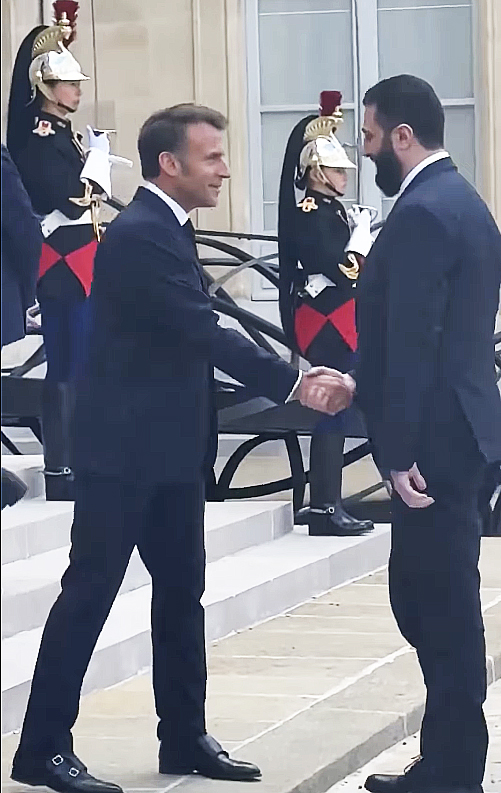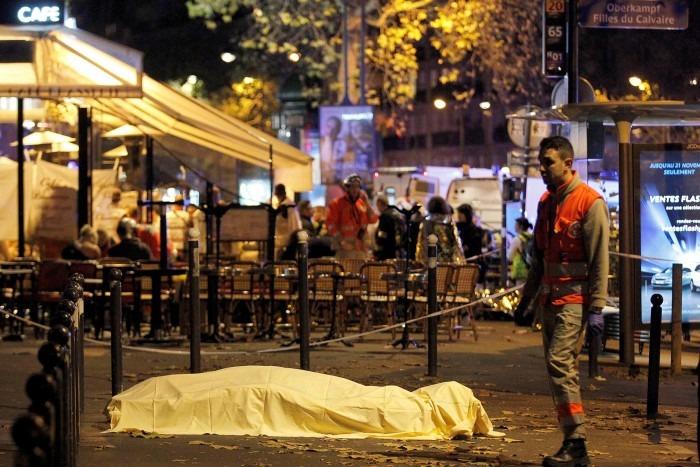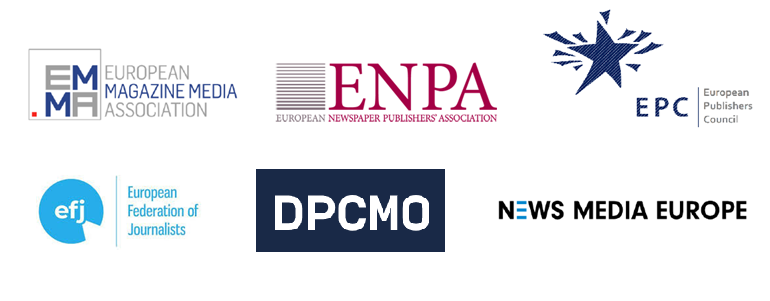In a move drawing intense scrutiny and quiet outrage, French President Emmanuel Macron has welcomed Syrian interim president Ahmed al-Sharaa — better known by his former nom de guerre Abu Mohammad al-Jolani — to the Élysée Palace, just months before the city solemnly marks the 10th anniversary of the ISIS-coordinated Bataclan massacre that killed 130 people.
The timing could not be more poignant — or more ironic.
Al-Sharaa, once a senior figure in the jihadist insurgency, was a member of the Islamic State of Iraq (ISI) in the early 2000s — the precursor to ISIS. He fought U.S. forces in Iraq, spent time in an American prison, and later founded Jabhat al-Nusra in Syria under al-Qaeda’s banner. In 2013, when ISI leader Abu Bakr al-Baghdadi declared the formation of ISIS and tried to absorb al-Nusra, al-Sharaa refused. The two factions split violently. Al-Sharaa pledged loyalty to al-Qaeda, not ISIS — igniting a brutal intra-jihadist war.

While his rejection of ISIS ultimately placed him at odds with the group responsible for the 2015 Paris attacks, including the Bataclan theatre massacre, his ideological proximity and shared militant roots are impossible to ignore.
Now, in an extraordinary political reversal, al-Sharaa arrives in Europe not as a fugitive or extremist — but as Syria’s de facto president, installed after the fall of Bashar al-Assad’s regime in December 2024. He is seeking Western legitimacy and, in Macron’s reception, appears to be finding it.
A Controversial Visit
On May 7, al-Sharaa stood on the steps of the Élysée, shaking hands with Macron. The visit marks his first official trip to Europe and the clearest sign yet that Western powers may be warming to a post-Assad Syria — even if its new leader once ran with jihadists.
Macron, in a statement, said France is willing to support a phased lifting of European Union sanctions on Syria, pending “concrete reforms.” The French president also revealed that he will encourage the United States to reconsider its own measures. Behind closed doors, the two leaders reportedly discussed regional stability and Syria’s indirect talks with Israel, aimed at de-escalating hostilities.
The juxtaposition is striking: a man once allied with the machinery that gave birth to ISIS, being received with diplomatic honors in the same city where ISIS unleashed its most brutal attack on Western soil.
Uncomfortable Questions
The visit comes just months before the 10th anniversary of the November 13, 2015 attacks, when ISIS operatives launched coordinated assaults across Paris. The most horrifying scene unfolded inside the Bataclan theatre, where 90 concertgoers were slaughtered during a performance by the Eagles of Death Metal.
In total, the attackers killed 130 people and injured 416, with between 80 and 99 individuals hospitalized in serious condition. The deaths were spread across multiple sites: 90 at the Bataclan, 21 at La Belle Équipe, 13 at Le Carillon and Le Petit Cambodge, five at Café Bonne Bière and La Casa Nostra, and one at the Stade de France.
For many in France, the memory is still raw. Survivors and families of victims will gather later this year for memorial events, some just blocks from where al-Sharaa and Macron discussed Syria’s future.
Critics say Macron’s decision to host the Syrian leader in the run-up to the anniversary is not just insensitive, but dangerous.
“It sends the message that violent extremists can reinvent themselves and be rewarded with legitimacy,” said one French parliamentarian under condition of anonymity. “This is a man who helped build the ideological scaffolding of the very group that attacked our capital.”
A New Image — or a Strategic Mask?
Since assuming power, al-Sharaa has made concerted efforts to distance himself from his militant past. He dissolved Hay’at Tahrir al-Sham (HTS), the group he led after formally breaking from al-Qaeda in 2016, and promised inclusive governance and national reconciliation. He has also reached out to Kurdish factions and pledged to integrate them into state institutions — a far cry from his days as a jihadi commander.
Yet international observers remain skeptical. While HTS and al-Sharaa now present a nationalist front, the group remains designated a terrorist organization by multiple governments. Intelligence agencies continue to monitor its networks for ties to past insurgencies.
Justice and Memory: The Trial Aftermath
In June 2022, nearly seven years after the attacks, a landmark French court ruling delivered justice to the perpetrators of the November 13 massacre. Twenty men were convicted of either carrying out or aiding the coordinated Islamic State attacks. Salah Abdeslam, the only surviving attacker, was sentenced to life imprisonment without the possibility of parole. Five other ISIS members, tried in absentia and presumed dead in Syria, were also given life sentences.
The 10-month trial, held in a specially built courtroom at the Paris Palais de Justice, was both a legal proceeding and a national reckoning. Over 415 victims testified, bringing raw emotion and harrowing personal accounts into the courtroom. Judge Jean-Louis Périès spent nearly an hour reading the verdicts, underscoring the gravity of the crimes.
Victims played a central role in the French legal process, joining as civil parties and participating in the proceedings through their own legal representation. Observers described the trial as having the tone of a truth commission — not just for justice, but to solidify France’s collective memory of the attacks.
Salah Abdeslam’s behavior during the trial reflected shifting tones — from calling himself a soldier of ISIS to eventually apologizing to victims, though the court ultimately dismissed his claim that he had chosen not to detonate his suicide vest out of remorse. Forensic evidence found the device was likely defective.
The trial marked a turning point in France’s fight against terrorism. According to former judge and parliamentarian Georges Fenech, it left a permanent impact on French intelligence and security doctrine, much like the post-9/11 transformation in the United States.
As France welcomes Syria’s new leader — once ideologically adjacent to the perpetrators — the memories of that courtroom, and the pain laid bare within it, remain vivid.
Whether Ahmed al-Sharaa’s transformation is genuine or pragmatic, the symbolism of his visit to Paris this week is hard to miss — or forgive.
In a city still haunted by the echo of gunfire and screams from the Bataclan, the reception of a former jihadist-turned-president at the seat of French power feels like a dark twist in the story of the war on terror. As France remembers its dead, it must now wrestle with a complicated truth: that yesterday’s enemies can become tomorrow’s diplomats — and that justice, in geopolitics, is often a matter of timing.




